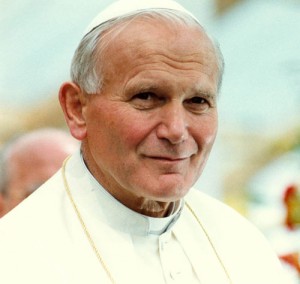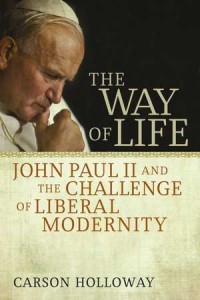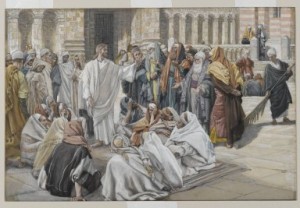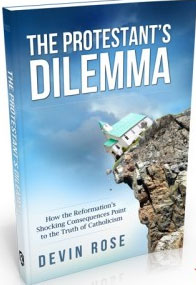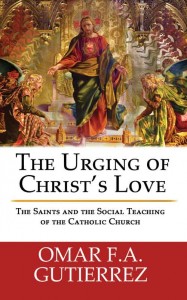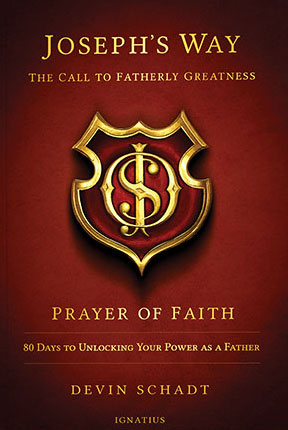“Extravagant love for Jesus“
[powerpress]
an excerpt from today’s reflection by Don Schwager: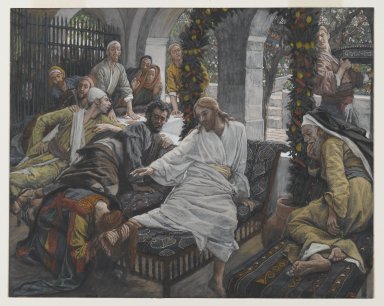
Do you know the love that knows no bounds? As Jesus dines with his beloved friends, Mary does something which only love can do. She took the most precious thing she had and spent it all on Jesus. Her love was not calculated but extravagant. Mary’s action was motivated by one thing, and one thing only, namely, her love for Jesus and her gratitude for God’s mercy. She did something, however, a Jewish woman would never do in public. She loosed her hair and anointed Jesus with her tears. It was customary for a woman on her wedding day to bound her hair. For a married woman to loosen her hair in public was a sign of grave immodesty. Mary was oblivious to all around her, except for Jesus. She took no thought for what others would think, but what would please her Lord. In humility she stooped to anoint Jesus’ feet and to dry them with her hair. How do you anoint the Lord’s feet and show him your love and gratitude?
The gospel records that the whole house was filled with the perfume of the ointment. What Mary had done brought sweetness not only in the physical sense, but the spiritual sense as well. Her lovely deed shows the extravagance of love – a love that we cannot outmatch. The Lord Jesus showed us the extravagance of his love in giving the best he had by pouring out his own blood for our sake and by anointing us with his Holy Spirit. The Apostle Paul says that nothing will be able to separate us from the love of God in Christ Jesus (Romans 8:39). Do you allow the love of Christ to rule in all your thoughts and intentions, and in all your words and deeds?
Why was Judas critical of Mary’s lovely deed? Judas viewed her act as extravagant wastefulness because of greed. A person views things according to what it inside the heart and soul. Judas was an embittered man and had a warped sense of what was precious and valuable, especially to God. Jesus had put Judas in charge of their common purse, no doubt because he was gifted in financial matters. The greatest temptation we can face will often come in the area of our greatest strength or gifting. Judas used money entrusted to him for wrong and hurtful purposes. He allowed greed and personal gain to corrupt his heart and to warp his view of things. He was critical towards Mary because he imputed unworthy motives. Do you examine your heart correctly when you impute wrong or unworthy motives towards others?
“Give us, Lord, a lively faith, a firm hope, a fervent charity, a love of you. Take from us all lukewarmness in meditation, dullness in prayer. Give us fervor and delight in thinking of you and your grace, your tender compassion towards me. The things we pray for, good Lord, give us grace to labor for: through Jesus Christ our Lord.” (Prayer of Sir Thomas More, 16th century)
for the full reflection visit : Daily Reading and Meditation
Tags: catholic, catholic podcast, catholic prayer
This entry was posted on Monday, April 14th, 2014 at 6:41 am
You can follow any responses to this entry through the RSS 2.0 feed.
“I am the Son of God”
[powerpress]
an excerpt from today’s reflection by Don Schwager: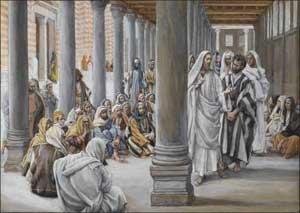
Is your life consecrated to God? The scriptural understanding of consecration is to make holy for God – to be given over as a free-will offering and sacrifice for God. Jesus made himself a sin-offering for us, to ransom us from condemnation and slavery to sin. He spoke of his Father consecrating him for this mission of salvation. Why were the religious leaders so upset with Jesus that they wanted to kill him? They charged him with blasphemy because he claimed to be the Son of God. Jesus made two claims in his response: He was consecrated by the Father to a special task and he was sent into the world to carry out his Father’s mission. Jesus challenged his opponents to accept his works if they could not accept his words. One can argue with words, but deeds are beyond argument. Jesus is the perfect teacher in that he does not base his claims on what he says but on what he does. The word of God is life and power to those who believe. Jesus shows us the way to walk the path of truth and holiness. And he anoints us with his power to live the gospel with joy and to be his witnesses in the world. Are you a doer of God’s word, or a forgetful hearer only?
“Write upon my heart, O Lord, the lessons of your holy word, and grant that I may be a doer of your word, and not a forgetful hearer only.”
for the full reflection visit : Daily Reading and Meditation
Tags: catholic, catholic podcast, catholic prayer
This entry was posted on Friday, April 11th, 2014 at 12:08 am
You can follow any responses to this entry through the RSS 2.0 feed.
WOL3 – Episode 3 -The influence of Thomas Hobbes and his role as the father of modern-day liberalism.  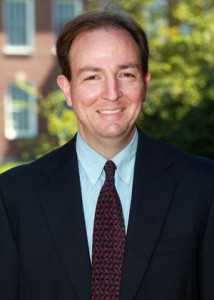 Absolute monarchy and the tyranny of “unlimited” government.  The difference between Divine-right monarchy and Absolute monarchy, and the legitimacy thought behind “dictatorship”.  How this affects ruling systems in history, and it’s influence on the “Culture of Death”.  Who was John Locke?  The Law of Nature and it’s obligations according to Locke’s thought.  The fundamental rule to preserve oneself.  Bl. John Paul’s response to that thought…to respect the moral law and give of oneself.
Absolute monarchy and the tyranny of “unlimited” government.  The difference between Divine-right monarchy and Absolute monarchy, and the legitimacy thought behind “dictatorship”.  How this affects ruling systems in history, and it’s influence on the “Culture of Death”.  Who was John Locke?  The Law of Nature and it’s obligations according to Locke’s thought.  The fundamental rule to preserve oneself.  Bl. John Paul’s response to that thought…to respect the moral law and give of oneself.
[powerpress]
The Way of Life, Carson Holloway examines the fundamental philosophers of modernity-from Hobbes to Toqueville-to suggest that John Paul II’s critique of modernity is intended not to reject, but to improve. Thus, claims Holloway, it is appropriate for liberal modernity to attend to the Pope’s thought, receiving it not as the attack of an enemy but as the criticism of a candid friend.
 Â
For other episodes in the series visit Dr. Holloway’s Discerning Hearts page
This series is based on Dr. Holloway’s book “The Way of Life”
Tags: catholic, catholic podcast, catholic prayer
This entry was posted on Thursday, April 10th, 2014 at 1:43 pm
You can follow any responses to this entry through the RSS 2.0 feed.
[powerpress]
an excerpt from today’s reflection by Don Schwager:
Jesus challenged the people of Israel to accept his word as the very revelation of God himself. His claim challenged the very foundation of their belief and understanding of God. Jesus made a series of claims which are the very foundation of his life and mission. What are these claims? First, Jesus claims unique knowledge of God as the only begotten Son of the Father in heaven. Since he claims to be in direct personal communion with his Father in heaven, he knows everything about the Father. Jesus claims that the only way to full knowledge of the mind and heart of God is through himself. Jesus also claims unique obedience to God the Father. He thinks, lives and acts in the knowledge of his Father’s word. To look at his life is to “see how God wishes me to live.” In Jesus alone we see what God wants us to know and what he wants us to be.
When the Jewish authorities asked Jesus who do you claim to be? he answered, “before Abraham was, I am.” Jesus claims to be timeless and there is only one in the universe who is timeless, namely God. Scripture tells us that “Jesus Christ is the same yesterday and today and forever” (Hebrews 13:8). Jesus was not just a man who came, lived, died, and then rose again. He is the immortal timeless One, who always was and always will be. In Jesus we see the eternal God in visible flesh. He is God who became a man for our sake and for our salvation. His death and resurrection make it possible for us to share in his immortality. Do you believe the words of Jesus and obey them with all your heart, mind, and strength?
“Lord Jesus, let your word be on my lips and in my heart that I may walk in the freedom of your everlasting love, truth and goodness.”
for the full reflection visit : Daily Reading and Meditation
Tags: catholic, catholic podcast, catholic prayer
This entry was posted on Thursday, April 10th, 2014 at 12:06 am
You can follow any responses to this entry through the RSS 2.0 feed.
What a delight to talk with Simcha Fisher! She is one of the most intriguing, engaging, and truly authentic Catholic writers out there today.  Her blogging for the National  Catholic Register is a stand out for their online features, and her Patheos blog “I Have to Sit Down” is one of my all-time favorites  (I highly encourage bookmarking it).  It’s a joy to be able to heartily recommend “The Sinner’s Guide to Natural Family Planning“!  Far from being just a critical examination of the topic, this book reads more like a conversation with a good friend at a coffee house.  All issues on are the table and thoughtfully discussed.  Wherever you find yourself on the subject, respect and encouragement is the order of the day.  Challenges are acknowledged and addressed by Simcha, who delivers time tested wisdom that is only garnered from a lived faith and years of experience.  Everyone should be reading this book, not just young married couples, but also priest, deacons, religious, and couples engaged in the conversations that shape our culture today.
Catholic Register is a stand out for their online features, and her Patheos blog “I Have to Sit Down” is one of my all-time favorites  (I highly encourage bookmarking it).  It’s a joy to be able to heartily recommend “The Sinner’s Guide to Natural Family Planning“!  Far from being just a critical examination of the topic, this book reads more like a conversation with a good friend at a coffee house.  All issues on are the table and thoughtfully discussed.  Wherever you find yourself on the subject, respect and encouragement is the order of the day.  Challenges are acknowledged and addressed by Simcha, who delivers time tested wisdom that is only garnered from a lived faith and years of experience.  Everyone should be reading this book, not just young married couples, but also priest, deacons, religious, and couples engaged in the conversations that shape our culture today.
[powerpress]
 You can find the book here
You can find the book here
Simcha speaks … with honesty along with the wit and wisdom that always make her teachings so memorable and helpful. She summons all of us to trust, mutual patience and kindness, and to a joyful honesty about NFP. —Msgr. Charles Pope, Pastor of Holy Comforter – St. Cyprian Parish, Washington, DC
Before The Sinner s Guide to NFP, the only way you could get this kind of candor on the subject of Natural Family Planning was in private conversations with your best friend. Simcha has taken all the things we think about NFP but feel like we can t say, brought them into the light, and addressed them with insight and razor-sharp wit. You ll laugh, you ll nod your head in recognition, and you ll ultimately walk away inspired by the kind of encouragement that only someone else in the trenches can offer. —Jennifer Fulwiler of Conversion Diary
Tags: catholic, catholic podcast, catholic prayer
This entry was posted on Tuesday, April 8th, 2014 at 1:37 pm
You can follow any responses to this entry through the RSS 2.0 feed.
“When you have lifted up the Son of man, then you will know that I am he”
[powerpress]
an excerpt from today’s reflection by Don Schwager: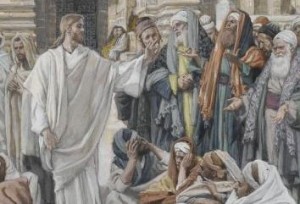
While many believed in Jesus and his message, many others, including the religious leaders, opposed him. Some openly mocked him when he warned them about their sin of unbelief. It’s impossible to be indifferent to Jesus’ word and his judgments. We are either for him or against him. There is no middle ground or neutral parties. When Jesus spoke about going away he was speaking about his return to his Father and to his glory. His opponents could not follow him because by their continuous disobedience to the word of God and their refusal to accept him, they had shut themselves off from God. Jesus warned them that if they continued to refuse him they would die in their sins. Jesus’ words echoed the prophetic warning given to Ezekiel (see Ezekiel 3:18 and 18:18) where God warns his people to heed his word before the time is too late. God gives us time to turn to him and to receive his grace, but that time is right now.
To sin literally means to miss the mark or to be off target. The essence of sin is that it diverts us from God and from our true purpose in life – to know the source of all truth and beauty which is God himself and to be united with God in everlasting joy. When Adam and Eve first sinned, they hid themselves from God (Genesis 3:8-10). That is what sin does; it separates us from the One who is all loving, all-wise, and all-just. Jesus went on to explain that if people could not recognize him in his word, they would have the opportunity to recognize him when he is “lifted up”on the cross of Calvary. Jesus pointed to the atoning sacrifice of his life on the cross as the true source of healing and victory over the sin of the world. The sacrifice of Christ’s life on the cross for our sins is the ultimate proof of God’s love for us. God so loved the world that he gave us his only Son, that whoever believes in him should not perish but have eternal life (John 3:16). To fail to recognize Jesus and where he came from is to remain in spiritual darkness; to believe Jesus and his words is to walk in the joy and light of God’s truth. There are certain opportunities in life that come and do not return. Each of us is given the opportunity to know and to accept Jesus Christ, as our Lord and Savior. But that opportunity can be rejected and lost. Life here is limited and short, but how we live it has everlasting consequences. Do you take advantage of the present time to make room for God so that your life will count for eternity?
“Lord Jesus, grant this day, to direct and sanctify, to rule and govern our hearts and bodies, so that all our thoughts, words and deeds may be according to your Father’s law and thus may we be saved and protected through your mighty help.”
for the full reflection visit : Daily Reading and Meditation
Tags: catholic, catholic podcast, catholic prayer
This entry was posted on Tuesday, April 8th, 2014 at 12:08 am
You can follow any responses to this entry through the RSS 2.0 feed.
 “Mercy in the City:  How to Feed the Hungry, Give Drink to the Thirsty, Visit the Imprisoned, and Keep Your Day Job” is an outstanding book! Kerry Weber has crafted a work that is an engaging page turner that is a  joy to read.  She shares her story of trying to “perform” all the Christian acts of mercy during Lent one year.  What she encounters is the living Christ in each of her experiences.  Kerry  is a wonderful story-teller. After reading “Mercy in the City”,  I dare you not to be inspired to take on the challenge to “Go in peace to love and serve the Lord”.
“Mercy in the City:  How to Feed the Hungry, Give Drink to the Thirsty, Visit the Imprisoned, and Keep Your Day Job” is an outstanding book! Kerry Weber has crafted a work that is an engaging page turner that is a  joy to read.  She shares her story of trying to “perform” all the Christian acts of mercy during Lent one year.  What she encounters is the living Christ in each of her experiences.  Kerry  is a wonderful story-teller. After reading “Mercy in the City”,  I dare you not to be inspired to take on the challenge to “Go in peace to love and serve the Lord”.
[powerpress]
 You can find the book here
You can find the book here
“Kerry Weber is one of the liveliest, brightest, most provocative and most articulate voices on the Catholic scene today. Â With stories that are both profound and lighthearted (and often at the same time) her marvelous new book will help you locate mercy in your daily life. Â This is that rare book that will indeed make you laugh and cry, but also pray and serve. Â Highly recommended.”
– James Martin, SJ author of My Life with the Saints and Jesus: A Pilgrimage
“This engaging book will take you to the heart of what it means to try to practice mercy in a cruel world. It helps us to remember that so much of what we take for granted — food, water to drink, clothing, and shelter — are a luxury to many, even in a land of plenty. From a soup line and homeless shelter to death row on San Quentin, the author makes us see the humanity of those we’d prefer to ignore. And if you’re looking for a book that cites both Basil the Great and ‘The Muppets Take Manhattan,’ this is for you!”
– Kathleen Norris, author of The Cloister Walk and Acedia and Me
Tags: catholic, catholic podcast, catholic prayer
This entry was posted on Monday, April 7th, 2014 at 1:12 pm
You can follow any responses to this entry through the RSS 2.0 feed.
“Go, and do not sin again“
[powerpress]
an excerpt from today’s reflection by Don Schwager: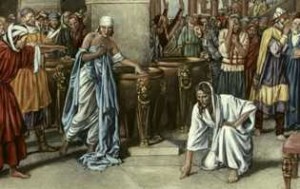
The Gospel accounts frequently describe how Jesus had to face unjust accusations made by the Pharisees, the ruling elders of Israel. They were upset with Jesus’ teaching and they wanted to discredit him in any way they could. They wanted to not only silence him, but to get rid of him because of his claim to speak with God’s authority. When a moral dilemma or difficult legal question arose, it was typical for the Jews to take the matter to a rabbi for a decision. The scribes and the Pharisees brought to Jesus a woman who had been caught in the act of adultery. John writes that they wanted to “test” Jesus on the issue of retribution so ” they might have some charge to bring against him” (John 8:6).
Jewish law treated adultery as a serious crime since it violated God’s ordinance and wreaked havoc on the stability of marriage and family life. It was one of the three gravest sins punishable by death. If Jesus said the woman must be pardoned, he would be accused of breaking the law of Moses. If he said the woman must be stoned, he would lose his reputation for being the merciful friend of sinners.
Jesus then does something quite unexpected – he begins to write in the sand. The word for “writing” which is used here in the Gospel text has a literal meaning “to write down a record against someone” (for another example see Job 13:26). Perhaps Jesus was writing down a list of the sins of the accusers standing before him. Jesus now turns the challenge towards his accusers. In effect he says: Go ahead and stone her! But let the man who is without sin be the first to cast a stone. The Lord leaves the matter to their own consciences.
Pardon, restoration, and new life
When the adulterous woman is left alone with Jesus, he both expresses mercy and he strongly exhorts her to not sin again. The scribes wished to condemn, Jesus wished to forgive and to restore the sinner to health. His challenge involved a choice – either to go back to her former way of sin and death or to reach out to God’s offer of forgiveness, restoration, and new life in his kingdom of peace and righteousness. Jesus gave her pardon and a new start on life. God’s grace enables us to confront our sin for what it is – unfaithfulness to God, and to turn back to God with a repentant heart and a thankful spirit for God’s mercy and forgiveness. Do you know the joy of repentance and a clean conscience?
“God our Father, we find it difficult to come to you, because our knowledge of you is imperfect. In our ignorance we have imagined you to be our enemy; we have wrongly thought that you take pleasure in punishing our sins; and we have foolishly conceived you to be a tyrant over human life. But since Jesus came among us, he has shown that you are loving, that you are on our side against all that stunts life, and that our resentment against you was groundless. So we come to you, asking you to forgive our past ignorance, and wanting to know more and more of you and your forgiving love, through Jesus Christ our Lord.” (Prayer of Saint Augustine)
for the full reflection visit : Daily Reading and Meditation
Tags: catholic, catholic podcast, catholic prayer
This entry was posted on Monday, April 7th, 2014 at 6:41 am
You can follow any responses to this entry through the RSS 2.0 feed.
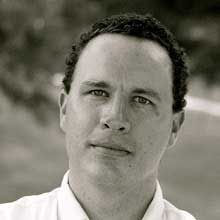 In “The Protestant’s Dilemma: How the Reformation’s Shocking Consequences Point to the Truth of Catholicism”, author/apologist Devin Rose carefully reflects on various Protestant claims and carries them to their logical conclusion.  By incorporating, at times, his own intellectual journey from Protestantism to Catholicism, he simply presents a strong case for the authority of Catholic Church teaching.  The format of the book is excellent for apologetic study. Addressing the basics of the faith, as well as the particulars of Catholic Social Teaching, he gently, but meticulously offers a sound manual of instruction that should be in the library of every one of us called to the “New Evangelization”.
In “The Protestant’s Dilemma: How the Reformation’s Shocking Consequences Point to the Truth of Catholicism”, author/apologist Devin Rose carefully reflects on various Protestant claims and carries them to their logical conclusion.  By incorporating, at times, his own intellectual journey from Protestantism to Catholicism, he simply presents a strong case for the authority of Catholic Church teaching.  The format of the book is excellent for apologetic study. Addressing the basics of the faith, as well as the particulars of Catholic Social Teaching, he gently, but meticulously offers a sound manual of instruction that should be in the library of every one of us called to the “New Evangelization”.
[powerpress]
You can find the book here
From the book description:
What if Protestantism were true? What if the Reformers really were heroes, the Bible the sole rule of faith, and Christ s Church just an invisible collection of loosely united believers? As an Evangelical, Devin Rose used to believe all of it. Then one day the nagging questions began. He noticed things about Protestant belief and practice that didn t add up. He began following the logic of Protestant claims to places he never expected it to go -leading to conclusions no Christians would ever admit to holding. In The Protestant s Dilemma, Rose examines over thirty of those conclusions, showing with solid evidence, compelling reason, and gentle humor how the major tenets of Protestantism – if honestly pursued to their furthest extent – wind up in dead ends. The only escape? Catholic truth. Rose patiently unpacks each instance, and shows how Catholicism solves the Protestant s dilemma through the witness of Scripture, Christian history, and the authority with which Christ himself undeniably vested his Church. The Protestant s Dilemma is the perfect book for non-Catholics trying to work through their own nagging doubts, or for Catholics looking for a fresh way to deepen their understanding of the Faith
Tags: catholic, catholic podcast, catholic prayer
This entry was posted on Monday, March 31st, 2014 at 6:32 am
You can follow any responses to this entry through the RSS 2.0 feed.
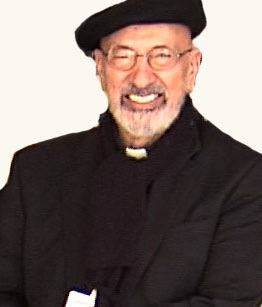 Show 61 ” Building a Kingdom of Love” – Are you blind although you can see?
Show 61 ” Building a Kingdom of Love” – Are you blind although you can see?
[powerpress]
Gospel JN 9:1-41
As Jesus passed by he saw a man blind from birth.
His disciples asked him,
“Rabbi, who sinned, this man or his parents,
that he was born blind?â€
Jesus answered,
“Neither he nor his parents sinned;
it is so that the works of God might be made visible through him.
We have to do the works of the one who sent me while it is day.
Night is coming when no one can work.
While I am in the world, I am the light of the world.â€
When he had said this, he spat on the ground
and made clay with the saliva,
and smeared the clay on his eyes,
and said to him,
“Go wash in the Pool of Siloam†—which means Sent—.
So he went and washed, and came back able to see.
His neighbors and those who had seen him earlier as a beggar said,
“Isn’t this the one who used to sit and beg?â€
Some said, “It is, “
but others said, “No, he just looks like him.â€
He said, “I am.â€
So they said to him, “How were your eyes opened?â€
He replied,
“The man called Jesus made clay and anointed my eyes
and told me, ‘Go to Siloam and wash.’
So I went there and washed and was able to see.â€
And they said to him, “Where is he?â€
He said, “I don’t know.â€
They brought the one who was once blind to the Pharisees.
Now Jesus had made clay and opened his eyes on a sabbath.
So then the Pharisees also asked him how he was able to see.
He said to them,
“He put clay on my eyes, and I washed, and now I can see.â€
So some of the Pharisees said,
“This man is not from God,
because he does not keep the sabbath.â€
But others said,
“How can a sinful man do such signs?â€
And there was a division among them.
So they said to the blind man again,
“What do you have to say about him,
since he opened your eyes?â€
He said, “He is a prophet.â€
Now the Jews did not believe
that he had been blind and gained his sight
until they summoned the parents of the one who had gained his sight.
They asked them,
“Is this your son, who you say was born blind?
How does he now see?â€
His parents answered and said,
“We know that this is our son and that he was born blind.
We do not know how he sees now,
nor do we know who opened his eyes.
Ask him, he is of age;
he can speak for himself.â€
His parents said this because they were afraid
of the Jews, for the Jews had already agreed
that if anyone acknowledged him as the Christ,
he would be expelled from the synagogue.
For this reason his parents said,
“He is of age; question him.â€
So a second time they called the man who had been blind
and said to him, “Give God the praise!
We know that this man is a sinner.â€
He replied,
“If he is a sinner, I do not know.
One thing I do know is that I was blind and now I see.â€
So they said to him,
“What did he do to you?
How did he open your eyes?â€
He answered them,
“I told you already and you did not listen.
Why do you want to hear it again?
Do you want to become his disciples, too?â€
They ridiculed him and said,
“You are that man’s disciple;
we are disciples of Moses!
We know that God spoke to Moses,
but we do not know where this one is from.â€
The man answered and said to them,
“This is what is so amazing,
that you do not know where he is from, yet he opened my eyes.
We know that God does not listen to sinners,
but if one is devout and does his will, he listens to him.
It is unheard of that anyone ever opened the eyes of a person born blind.
If this man were not from God,
he would not be able to do anything.â€
They answered and said to him,
“You were born totally in sin,
and are you trying to teach us?â€
Then they threw him out.
When Jesus heard that they had thrown him out,
he found him and said, ADo you believe in the Son of Man?â€
He answered and said,
“Who is he, sir, that I may believe in him?â€
Jesus said to him,
“You have seen him,
the one speaking with you is he.â€
He said,
“I do believe, Lord,†and he worshiped him.
Then Jesus said,
“I came into this world for judgment,
so that those who do not see might see,
and those who do see might become blind.â€
Some of the Pharisees who were with him heard this
and said to him, “Surely we are not also blind, are we?â€
Jesus said to them,
“If you were blind, you would have no sin;
but now you are saying, ‘We see,’ so your sin remains
Lectionary for Mass for Use in the Dioceses of the United States, second typical edition, Copyright © 2001, 1998, 1997, 1986, 1970 Confraternity of Christian Doctrine;
Msgr. John A. Esseff is a Roman Catholic priest in the Diocese of Scranton. He was ordained on May 30th 1953, by the late Bishop William J. Hafey, D.D. at St. Peter’s Cathedral in Scranton, PA. Msgr. Esseff served a retreat director and confessor to Blessed Mother Teresa. He continues to offer direction and retreats for the sisters of the missionaries of charity around the world. Msgr. Esseff encountered St. Padre Pio, who would become a spiritual father to him. He has lived in areas around the world, serving in the Pontifical missions, a Catholic organization established by Bl. Pope John Paul II to bring the Good News to the world especially to the poor. Msgr. Esseff assisted the founders of the Institute for Priestly Formation and continues to serve as a spiritual director for the Institute. He continues to serve as a retreat leader and director to bishops, priests and sisters and seminarians and other religious leaders around the world.
To obtain a copy of Msgr. Esseff’s book by visiting here
Be sure to visit Msgr. Esseff’s website “Building a Kingdom of Love”
Tags: catholic, catholic podcast, catholic prayer
This entry was posted on Monday, March 31st, 2014 at 5:51 am
You can follow any responses to this entry through the RSS 2.0 feed.
“Unless you see signs and wonders you will not believe”
[powerpress]
an excerpt from today’s reflection by Don Schwager: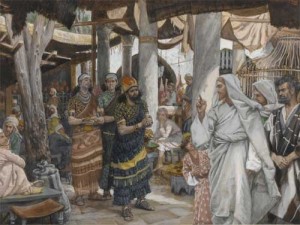
Do you approach the Lord Jesus with expectant faith for healing, pardon, and transformation in Christ-like holiness? Isaiah prophesied that God would establish a new heavens and earth when he came to restore his people. Jesus’ miracles are signs that manifest the presence and power of God’s kingdom. When a high ranking official, who was very likely from King Herod’s court, heard the reports of Jesus’ preaching and miracles, he decided to seek Jesus out for an extraordinary favor. If this story happened today the media headlines would probably say: “High ranking official leaves capital in search of miracle cure from a small town carpenter.”
It took raw courage for a high ranking court official to travel twenty miles in search of Jesus, the Galilean carpenter. He had to swallow his pride and put up with some ridicule from his cronies. And when he found the healer carpenter, Jesus seemed to put him off with the blunt statement that people would not believe unless they saw some kind of miracle or sign from heaven. Jesus likely said this to test the man to see if his faith was in earnest. If he turned away discouraged or irritated, he would prove to be insincere. Jesus, perceiving his faith, sent him home with the assurance that his prayer had been heard. It was probably not easy for this man to leave Jesus and go back home only with the assuring word that his son would be healed. Couldn’t Jesus have come to this man’s home and touched his dying child? The court official believed in Jesus and took him at his word without doubt or hesitation. He was ready to return home and face ridicule and laughter because he trusted in Jesus’ word.
God’s mercy shows his generous love – a love that bends down in response to our misery and wretchedness. Is there any area in your life where you need healing, pardon, change, and restoration? If you seek the Lord with trust and expectant faith, he will not disappoint you. He will meet you more than half way and give you what you need. The Lord Jesus never refused anyone who put their trust in him. Surrender your doubts and fears, your pride and guilt at his feet, and trust in his saving word and healing love.
“Lord Jesus, your love never fails and your mercy is unceasing. Give me the courage to surrender my stubborn pride, fear and doubts to your surpassing love, wisdom and knowledge. Make be strong in faith, persevering in hope, and constant in love.”
for the full reflection visit : Daily Reading and Meditation
Tags: catholic, catholic podcast, catholic prayer
This entry was posted on Monday, March 31st, 2014 at 12:15 am
You can follow any responses to this entry through the RSS 2.0 feed.
“Love the Lord with all your heart, soul, mind, and strength”
[powerpress]
an excerpt from today’s reflection by Don Schwager: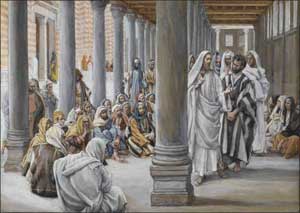
How does love and obedience to God’s law go together? The Pharisees prided themselves in the knowledge of the law and their ritual requirements. They made it a life-time practice to study the six hundred and thirteen precepts of the Old Testament along with the numerous rabbinic commentaries. They tested Jesus to see if he correctly understood the law as they did. Jesus startled them with his profound simplicity and mastery of the law of God and its purpose. What does God require of us? Simply that we love as he loves! God is love and everything he does flows from his love for us. God loved us first and our love for him is a response to his exceeding grace and kindness towards us. The love of God comes first and the love of neighbor is firmly grounded in the love of God. The more we know of God’s love and truth the more we love what he loves and reject what is hateful and contrary to his will.
What makes our love for God and his commands grow in us? Faith in God and hope in his promises strengthen us in the love of God. They are essential for a good relationship with God, for being united with him. The more we know of God the more we love him and the more we love him the greater we believe and hope in his promises. The Lord, through the gift of the Holy Spirit, gives us a new freedom to love as he loves (Galatians 5:13). Do you allow anything to keep you from the love of God and the joy of serving others with a generous heart? Paul the Apostle says: hope does not disappoint us, because God’s love has been poured into our hearts through the Holy Spirit which has been given to us (Romans 5:5). Do you know the love which conquers all?
“We love you, O our God; and we desire to love you more and more. Grant to us that we may love you as much as we desire, and as much as we ought. O dearest friend, who has so loved and saved us, the thought of whom is so sweet and always growing sweeter, come with Christ and dwell in our hearts; that you keep a watch over our lips, our steps, our deeds, and we shall not need to be anxious either for our souls or our bodies. Give us love, sweetest of all gifts, which knows no enemy. Give us in our hearts pure love, born of your love to us, that we may love others as you love us. O most loving Father of Jesus Christ, from whom flows all love, let our hearts, frozen in sin, cold to you and cold to others, be warmed by this divine fire. So help and bless us in your Son.” (Prayer of Anselm, 12th century)
for the full reflection visit : Daily Reading and Meditation
Tags: catholic, catholic podcast, catholic prayer, Faith in God, relationship with God
This entry was posted on Friday, March 28th, 2014 at 5:09 am
You can follow any responses to this entry through the RSS 2.0 feed.
“If it is by the finger of God”
[powerpress]
an excerpt from today’s reflection by Don Schwager: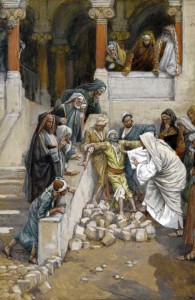
Jesus’ numerous exorcisms brought freedom to many who were troubled and oppressed by the work of evil spirits. Jesus himself encountered personal opposition and battled with Satan when he was put to the test in the wilderness just before his public ministry. He overcame the evil one through his obedience to the will of his Father. Some of the Jewish leaders reacted vehemently to Jesus’ healings and exorcisms and they opposed him with malicious slander. How could he get the power and authority to release individuals from Satan’s power? They assumed that he had to be in league with Satan. They attributed his power to Satan rather than to God.
Jesus answers their charge with two arguments. There were many exorcists in Palestine in Jesus’ time. So Jesus retorted by saying that they also incriminate their own kin who cast out demons. If they condemn Jesus they also condemn themselves. In his second argument he asserts that no kingdom divided against itself cannot survive for long? We have witnessed enough civil wars in our own time to prove the destructive force at work here for the annihilation of whole peoples and their land. If Satan lends his power against his own forces then he is finished. How can a strong person be defeated except by someone who is stronger? Jesus asserted his power and authority to cast out demons as a clear demonstration of the reign of God. Jesus’ reference to the finger of God points back to Moses’ confrontation with Pharoah and his magicians who represented Satan and the kingdom of darkness (see Exodus 8:19). Jesus claims to be carrying on the tradition of Moses whose miracles freed the Israelites from bondage by the finger of God. God’s power is clearly at work in the exorcisms which Jesus performed and they give evidence that God’s kingdom has come.
Jesus makes it clear that there are no neutral parties. We are either for Jesus or against him, for the kingdom of God or against it. There are two kingdoms in opposition to one another – the kingdom of God and the kingdom of darkness under the rule of Satan. If we disobey God’s word, we open to door to the power of sin and Satan in our lives. If you want to live in freedom from sin and Satan, then your house – your life and all you possess – must be occupied by Jesus where he is enthroned as Lord and Savior. Is the Lord Jesus the Master of your home, heart, mind, and will?
“O Lord, our God, grant us, we beseech you, patience in troubles, humility in comforts, constancy in temptations, and victory over all our spiritual foes. Grant us sorrow for our sins, thankfulness for your benefits, fear of your judgment, love of your mercies, and mindfulness of your presence; now and for ever.” (Prayer by John Cosin)
for the full reflection visit : Daily Reading and Meditation
Tags: catholic, catholic podcast, catholic prayer
This entry was posted on Thursday, March 27th, 2014 at 12:03 am
You can follow any responses to this entry through the RSS 2.0 feed.
Episode 37- Regnum Novum: Bringing forth the New Evangelization through Catholic Social Teaching with Omar Gutierrez –  We continue the study of the “Compendium of the Social Doctrine of the Church” Â Chapter 10 “Safeguarding the Environment”
We continue the study of the “Compendium of the Social Doctrine of the Church” Â Chapter 10 “Safeguarding the Environment”
[powerpress]
CHAPTER TEN
SAFEGUARDING THE ENVIRONMENT
I. BIBLICAL ASPECTS
II. MAN AND THE UNIVERSE OF CREATED THINGS
III. THE CRISIS IN THE RELATIONSHIP BETWEEN MAN AND THE ENVIRONMENT
IV. A COMMON RESPONSIBILITY
a. The environment, a collective good
b. The use of biotechnology
c. The environment and the sharing of goodsÂ
d. New lifestyles
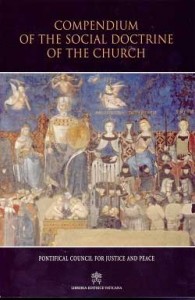
We live at a very special time. The confluence of many things has brought forth the clear need to be able to articulate the Social Teaching of the Catholic Church in a way that is accessible and applicable. This is not to be an effort where high-minded theories are to be bandied about. Rather, this is a time of opportunity wherein we can apply the Social Doctrine to the concrete so as to bring about a New Kingdom, a Revolution. – Omar G.
Also visit Omar’s “Discerning Hearts” page Catholic Social Teaching 101
You can find Omar Gutierrez’s book here
In The Urging of Christ’s Love Omar Gutiérrez tells the stories of eleven people who lived their lives in pursuit of Christ Jesus. Each Saint, Blessed or Servant of God is considered in the context of Catholic Social Teaching. Then at the end of each chapter a prayer is offered and quotes from the Compendium of the Social Doctrine of the Church are provided in order to link the lessons we can learn from the saint’s life to Church teaching. By discovering some new saint friends, and rediscovering some old ones, The Urging of Christ’s Love presents Catholic Social Teaching in an accessible and important way.
Tags: catholic, catholic podcast, catholic prayer
This entry was posted on Wednesday, March 26th, 2014 at 12:10 am
You can follow any responses to this entry through the RSS 2.0 feed.
 Devin Schadt  offers  a tremendous work proclaiming St. Joseph as a model for the authentic expression of manhood and fatherhood.  In “ Joseph’s Way: The Call to Fatherly Greatness: Part I: Prayer of Faith”, he shares his compelling personal witness to the great saint’s role in his life.  He also uses  Scripture, the Catechism of the Catholic Church, and many other outstanding resources, to fashion a study that helps to deepen the faith of those who walk with good St. Joseph through the perils men, as well as their families, face in our world today.
Devin Schadt  offers  a tremendous work proclaiming St. Joseph as a model for the authentic expression of manhood and fatherhood.  In “ Joseph’s Way: The Call to Fatherly Greatness: Part I: Prayer of Faith”, he shares his compelling personal witness to the great saint’s role in his life.  He also uses  Scripture, the Catechism of the Catholic Church, and many other outstanding resources, to fashion a study that helps to deepen the faith of those who walk with good St. Joseph through the perils men, as well as their families, face in our world today.
[powerpress]
You can find the book here
From the book description:
Among the most serious crises facing our nation and the world is the crisis of fatherhood. Indeed, if the world is to be converted, the Church must be renewed. If the macro-Church is to be renewed, the micro church of the family must be restored. And if the family is to be restored and re-vitalized, the man who is both husband and father must become who God has created him to be – a father on earth like the Father in heaven. Joseph’s Way: The Call to Fatherly Greatness, Part I: Prayer of Faith is the first in a four book series that comprises an in-depth vision of the human father as seen through the lens of St. Joseph and the patriarchs. By comparing Abraham the ‘Father in Faith’, with St. Joseph the just father who lived by faith fathers will discover the power of their vocation and their essential role in rebuilding society. Joseph’s Way: The Call to Fatherly Greatness, Part I: Prayer of Faith helps men become great fathers by re-discovering the hidden greatness of fatherhood.
Tags: catholic, catholic podcast, catholic prayer
This entry was posted on Wednesday, March 26th, 2014 at 12:09 am
You can follow any responses to this entry through the RSS 2.0 feed.

